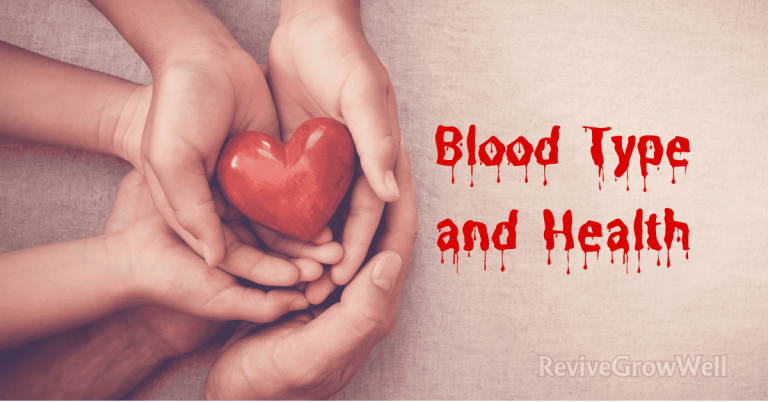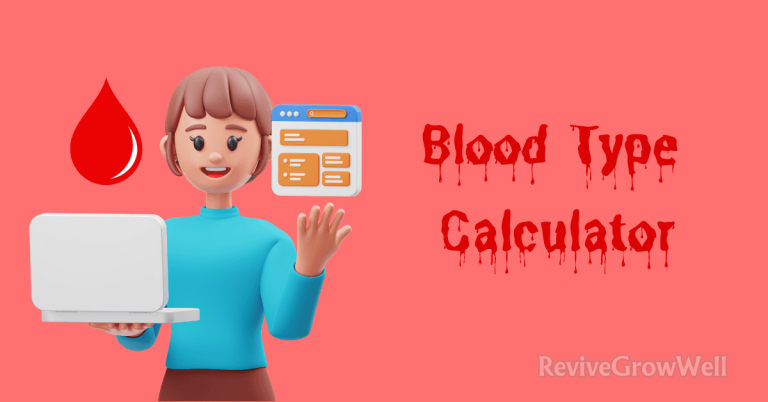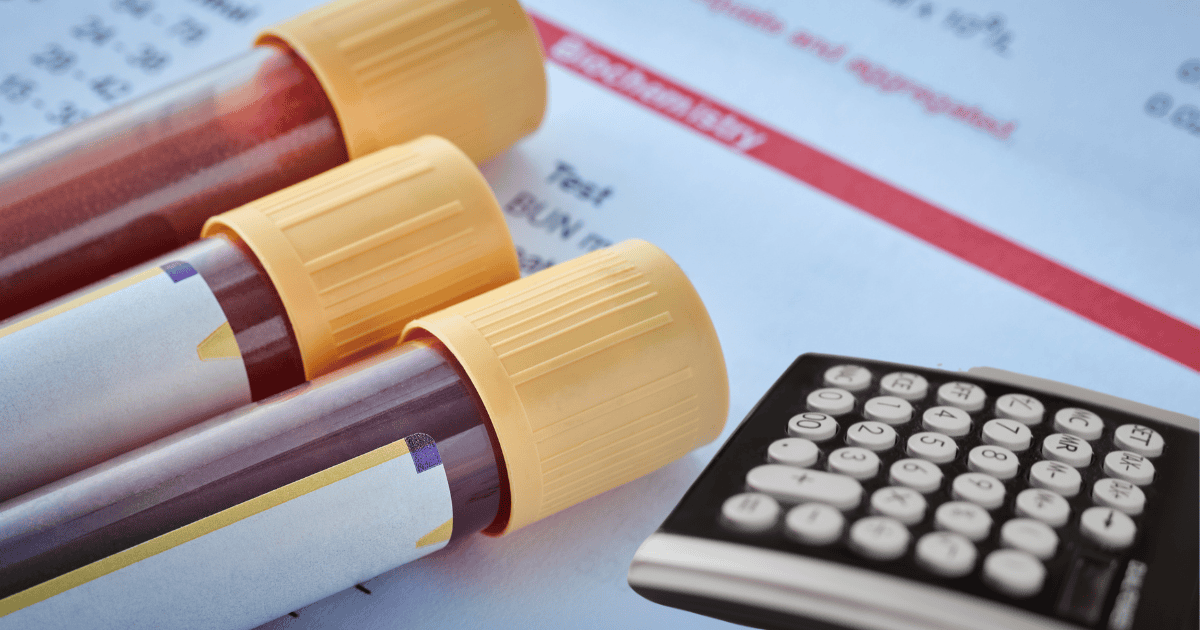Find Out Your Blood Type and What It Means for Your Health
Understanding your blood type can provide valuable insights into your health, diet, and even your exercise routine. Our Blood Type Calculator is designed to help you determine your blood type easily and explore its implications.
In this guide, we will cover everything you need to know about blood types, their health significance, and how you can leverage this information for a healthier lifestyle.

How to Use the Blood Type Calculator
Our Blood Type Calculator is user-friendly and straightforward. Here’s how you can use it:
- Input Your Parents’ Blood Types: Enter the blood types of your parents. If you don’t know their blood types, you can often find this information on their medical records or ask them directly.
- Click Calculate: Once you have entered the necessary information, click on the “Calculate” button.
- View Results: The calculator will provide you with potential blood type outcomes.
Using the Blood Type Calculator can give you a clearer picture of your genetic makeup and potential health considerations.
Blood Type Calculator with Rh Factor
Our Blood Type Calculator with Rh Factor helps you determine both your ABO blood group and the Rh factor (positive or negative). The Rh factor is an additional antigen that can be present on the surface of red blood cells. Knowing your Rh factor is important for various medical reasons, including blood transfusions and pregnancy.
How to Use the Blood Type Calculator with Rh Factor

- Input Your Parents’ Blood Types and Rh Factors: Enter both the ABO blood types and the Rh factors of your parents.
- Click Calculate: After entering the information, click on the “Calculate” button.
View Results: The calculator will provide you with the possible ABO blood groups and Rh factors you may have.
Understanding Blood Types
What Are Blood Types?
Blood types are classifications of blood based on the presence or absence of antibodies and inherited antigenic substances on the surface of red blood cells. The main blood groups are A, B, AB, and O, each of which can be Rh-positive or Rh-negative.
- Type A: Has the A antigen on red cells with anti-B antibodies in the plasma.
- Type B: Has the B antigen with anti-A antibodies in the plasma.
- Type AB: Has both A and B antigens but no anti-A or anti-B antibodies.
- Type O: Has no A or B antigens but both anti-A and anti-B antibodies.
How Blood Types Are Determined
Blood types are inherited from your parents. The ABO blood group system and the Rh factor (positive or negative) are the primary methods for determining blood type.
Each parent contributes one of two ABO genes, which combine to form your blood type.
Blood Types and Health

Blood Type and Disease Risk
Research has shown that certain blood types may be more susceptible to specific diseases. Here’s a brief overview:
- Type A: Individuals with type A blood may have a higher risk of heart disease and cancer, particularly stomach cancer.
- Type B: Type B individuals might be more prone to pancreatic cancer.
- Type AB: This blood type is relatively rare and may be associated with a higher risk of cognitive issues.
- Type O: Type O blood has been linked to a lower risk of heart disease but a higher risk of ulcers.
Blood Type and Diet
The concept of the blood type diet suggests that eating certain foods can improve health based on your blood type. While the scientific community remains divided on its efficacy, here are the general recommendations:
- Type A: A vegetarian diet rich in fruits, vegetables, tofu, and whole grains.
- Type B: A balanced diet including meat, dairy, grains, and vegetables, but avoiding chicken and corn.
- Type AB: A mixed diet in moderation, including seafood, dairy, tofu, beans, and grains.
- Type O: A high-protein diet consisting mainly of lean meat, fish, vegetables, and fruits, with limited grains, beans, and dairy.
Blood Type and Exercise

Different blood types might benefit from specific types of exercise:
- Type A: Calming exercises like yoga and tai chi.
- Type B: Moderate activities like hiking and cycling.
- Type AB: A combination of calming exercises and moderate activities.
- Type O: High-intensity workouts like running and weightlifting.
Blood Type Calculator Tool
Our Blood Type Calculator is designed to provide you with an estimate of your blood type based on your parents’ blood types. While it is not a substitute for medical testing, it can offer a helpful insight. Give it a try and discover more about your genetic makeup and health implications.

Additional Resources
For more in-depth information on blood types and health, check out these authoritative sources:
American Red Cross: Comprehensive information on blood donation and the importance of knowing your blood type.
Mayo Clinic: Detailed articles on the significance of blood types and their impact on health.
National Institutes of Health: Research and publications on blood types and related genetic studies.
FAQs About Blood Types Calculator
1. How is blood type calculated?
Blood type is calculated based on the presence or absence of specific antigens on the surface of red blood cells. These antigens are inherited from your parents. The ABO system and the Rh factor (positive or negative) are used to determine your blood type.
2. How can I find out my blood type?
You can find out your blood type through:
- Medical Records: Check your medical records if you have had blood tests or surgeries.
- Blood Donation: Blood donation centers often provide this information.
- Home Testing Kits: Purchase a blood type test kit online or at a pharmacy.
- Doctor’s Office: Request a blood test from your healthcare provider.
3. What does A+ and O+ blood make?
If one parent has A+ blood and the other has O+ blood, their child can have either A+ or O+ blood. The specific blood type of the child will depend on the combination of the parents’ genes.
4. Can O+ and O+ have a baby?
Yes, two parents with O+ blood can have a baby. Their child will also have O blood type, but the Rh factor could be positive or negative, depending on the parents’ specific Rh gene combination.
5. Can my blood type change?
No, your blood type is determined by your genetics and remains the same throughout your life. However, certain medical conditions.
6. How to calculate blood group?
Blood group is calculated based on the presence or absence of specific antigens on the surface of red blood cells. The two main systems used are the ABO system and the Rh factor. The ABO system identifies blood types as A, B, AB, or O, while the Rh factor determines if the blood type is positive (+) or negative (-). Blood type is inherited from your parents, and a blood test conducted by a healthcare provider can determine your blood group.
Conclusion
Understanding your blood type can unlock valuable insights into your health and well-being. With our Blood Type Calculator, you can easily determine your blood type and explore its implications for your diet, exercise, and disease risk. This comprehensive guide has provided you with detailed information on blood types, their health significance, and how you can use this knowledge to lead a healthier lifestyle.
Remember, knowing your blood type is just one step towards better health. Make sure to consult healthcare professionals for personalized advice and regular check-ups. By leveraging the information provided by our Blood Type Calculator and integrating it into your daily routine, you can make informed decisions that support your overall health and wellness.
We encourage you to try our Blood Type Calculator now, share your results with friends and family, and explore our additional health tools to further enhance your well-being. Stay informed, stay healthy, and take proactive steps towards a better you.








